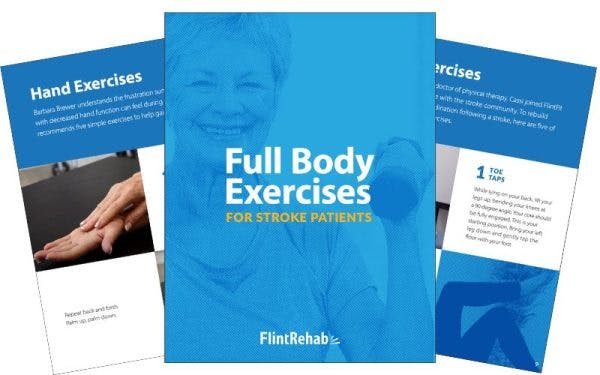Can erythritol cause strokes? The popular zero-calorie sugar substitute, has been gaining attention not just in the health food world but in headlines, too. While it’s often touted as a safe alternative to sugar, recent studies have raised questions about the potential link between erythritol and stroke as well as other cardiovascular events (like heart attacks).
If you’re using erythritol or other sugar alcohols as part of a “healthy” lifestyle, this article will help you understand the facts, explore current research, and decide what’s right for you.
What Is Erythritol?
Erythritol is a type of sugar alcohol, often found in low-calorie and sugar-free products like:
- Keto-friendly desserts
- Diet sodas
- Chewing gum
- Protein bars
- Sugar-free candy
- Some oral care products
Naturally occurring in small amounts in fruits like grapes and melons, erythritol is most commonly produced through industrial fermentation of corn or wheat starch. Unlike some sugar alcohols (like sorbitol or xylitol), erythritol is known for causing fewer digestive issues and having a very low glycemic index.
It’s absorbed into the bloodstream in the small intestine and excreted unchanged in the urine, making it an attractive option for people managing diabetes or looking to reduce sugar intake.
Why People Choose Erythritol
Erythritol has gained popularity among health-conscious consumers for several reasons:
- Zero calories: It provides sweetness without the added energy.
- No impact on blood sugar: It doesn’t cause spikes in glucose or insulin levels.
- Tooth-friendly: Unlike sugar, it doesn’t feed bacteria that lead to tooth decay.
- Better digestion tolerance: It tends to cause fewer side effects compared to other sugar alcohols.
Because of these benefits, erythritol has become a go-to sweetener for many low-carb, keto, and diabetic-friendly products.
Stroke and Erythritol Controversy: Where Did It Begin?
Concerns about erythritol and stroke risk emerged in 2023, when researchers published a study in the journal Nature Medicine. The study looked at blood samples from over 4,000 individuals across the U.S. and Europe and found that people with higher levels of erythritol in their blood had an increased risk of cardiovascular events—including heart attack and stroke—over a three-year period.
In addition, other studies have demonstrated potential links between low calorie substitutes like diet soda and stroke.
This understandably raised alarm among both consumers and healthcare professionals. But before we jump to conclusions, it’s important to understand what this study actually means—and what it doesn’t.
What Did the Research Actually Find Between Stroke and Erythritol?
Here’s a breakdown of the key findings from the Nature Medicine study:
- Participants with higher blood erythritol levels were more likely to experience a major cardiovascular event.
- The link remained even after accounting for age, existing health conditions, and other risk factors.
- Erythritol appeared to enhance blood platelet activity, potentially increasing the likelihood of blood clot formation (thrombosis).
However, this study was observational, which means it could only point to a correlation and not a cause-effect relationship.
Another important point: the individuals in the study were already considered high-risk, including people with obesity, diabetes, or heart disease.
Is Erythritol Produced By the Body Naturally?
An interesting twist in this discussion is that erythritol is not only consumed from food—it can also be produced by your body. Under certain metabolic conditions (like high glucose levels), the body naturally produces erythritol from glucose via the pentose phosphate pathway.
Therefore, in people with obesity or insulin resistance, elevated erythritol levels in the blood may reflect an underlying health issue, potentially unrelated to dietary erythritol consumption.
In other words, high blood erythritol may be a marker of poor metabolic health, rather than the cause of cardiovascular events like a stroke.
Does Erythritol Cause Blood Clots?
Some lab research and mouse studies have shown that erythritol can increase platelet aggregation, meaning it may encourage the clumping of blood cells—a key factor in clot formation.
This mechanism could theoretically increase the risk of blood clots, which in turn could raise stroke risk. However, it’s important to recognize the limits of this evidence:
- Lab studies often use concentrations higher than what you’d get from food.
- Mouse biology doesn’t always translate to human outcomes.
- Human trials confirming this effect are lacking.
- Many long-term animal studies looking at erythritol consumption have not found an increased risk of clots.
So while there may be a possible mechanism, it has not yet been firmly linked to actual clinical outcomes in the general population.
What Other Experts Are Saying About the Link Between Erythritol and Stroke
The response from the scientific community has been cautious. Many researchers have acknowledged that the findings are worth further exploration but have also emphasized the need for more evidence.
The U.S. Food and Drug Administration (FDA) currently considers erythritol “generally recognized as safe” (GRAS), and there have been no official warnings or recommendations to avoid it based on the current evidence.
Major organizations like the American Heart Association and the American Diabetes Association have not made any new guidelines specific to erythritol in light of this research.
However, a study published in 2024 by the American Heart Association did suggest that it may be necessary to reevaluate the safety of erythritol, as recent evidence points to the importance of pursuing further research. Contrarily, the American Diabetes Association published a study in the same year that found no supportive evidence for a causal relationship between erythritol levels and cardiometabolic disease.
Should People at Risk of Stroke Avoid Erythritol?
If you have a history of stroke, blood clots, heart disease, or related conditions, it may be worth discussing erythritol use with your doctor.
Here are some questions to consider:
- Do you consume erythritol frequently or in large amounts?
- Is it a major part of your daily diet?
- Are you also managing diabetes, obesity, or other cardiovascular risk factors?
If the answer to several of these is yes, switching to another natural sweetener (like stevia or monk fruit) might provide peace of mind without a major impact on your lifestyle.
What Does This Mean for Stroke Survivors?
For stroke survivors, managing overall cardiovascular health is key. That means:
- Keeping blood pressure and cholesterol under control
- Quitting smoking
- Staying physically active
- Following a heart-healthy diet
- Managing blood sugar (especially if diabetic or pre-diabetic)
- Working with your care team to understand your personal risk factors
Sugar substitutes like erythritol can be part of a recovery-friendly diet, especially when trying to reduce added sugars. However, moderation is essential, and it’s always smart to be cautious about new findings—especially when your health is already compromised.
Check out these 7 powerful foods that can help prevent stroke.
Tips for Reducing Risk of Stroke While Using Sugar Substitutes Like Erythritol
If you want to continue using erythritol—or any other sugar substitute—while minimizing potential risks, consider the following:
- Avoid excessive intake: Even zero-calorie sweeteners shouldn’t dominate your diet.
- Check labels: Erythritol is often blended with other sweeteners or additives. Know what you’re consuming.
- Balance your plate: A diet rich in vegetables, whole grains, lean proteins, and healthy fats supports long-term brain and heart health.
- Stay active: Movement helps improve circulation and reduce stroke risk.
- Talk to your doctor: Especially if you have a history of cardiovascular issues.
Final Thoughts: What We Know and Don’t Know About the Link Between Erythritol and Stroke
So, can erythritol cause strokes?
Here’s a summary of what we currently know:
- A study found a link between high blood erythritol levels and increased risk of cardiovascular events.
- The study could not prove erythritol caused these events—it only showed an association.
- Elevated erythritol in blood may result from poor metabolic health, not just diet.
- Laboratory findings raise theoretical concerns, but clinical trials in the general population are lacking.
- Erythritol is still considered safe by regulatory agencies when consumed in typical amounts.
If you’re healthy and consume erythritol occasionally, there’s no strong evidence to suggest you need to worry. But if you’re managing chronic health conditions—or simply want to play it safe—cutting back or choosing other sweeteners could be a reasonable choice.
FAQs About Erythritol and Stroke
Q: How much erythritol is safe to consume?
A: Most studies suggest that up to 1 gram per kilogram of body weight per day is well-tolerated. For a 150-pound adult, that’s roughly 68 grams—a fairly high amount. Of note, the European Food Safety Authority recommends a lower limit of 0.5 grams per kilogram of body weight due to its potential laxative effect.
Q: Is erythritol safe for diabetics?
A: Yes, it doesn’t raise blood sugar or insulin levels. However, if you have cardiovascular disease, it’s worth discussing the latest research with your doctor.
Q: Should I stop using erythritol completely?
A: Not necessarily. The current evidence is not strong enough to recommend a full stop for most people. Moderation and variety are key.
Q: What are good alternatives to erythritol?
A: Consider stevia, monk fruit, or allulose if you’re looking for a natural low-calorie option.
Should You Be Concerned About Erythritol and Stroke?
The recent findings around erythritol and stroke risk have understandably caused concern, but the science is still evolving. While one large study showed an association between high erythritol levels and cardiovascular events, it did not prove causation—and the participants were already at higher risk due to existing health conditions.
Erythritol remains a popular and generally well-tolerated sugar substitute. For most people, using it in moderation is unlikely to pose serious health risks. However, if you have underlying cardiovascular concerns or simply want to take a cautious approach, it may be worth choosing alternative sweeteners until more conclusive research is available.
As always, speak with your healthcare provider before making major dietary changes, especially if you’re managing stroke risk or recovering from one. Staying informed, eating a balanced diet, and keeping active are still the best tools for protecting your health!









